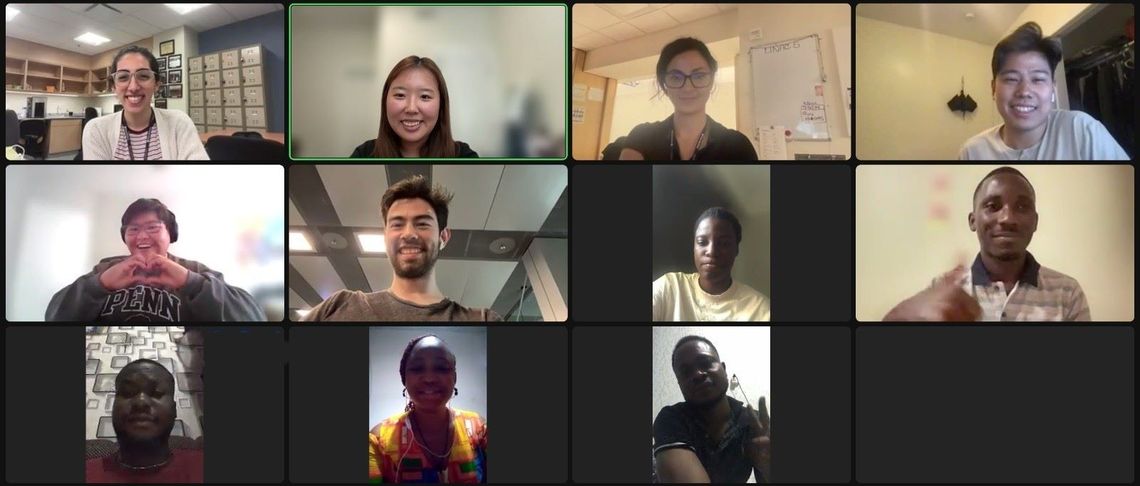Global Health Initiatives
Course Spotlight: Introduction to Global Oncology
MPHY 5000: Introduction to Global Oncology explores how cancer care varies worldwide, from epidemiology and access to treatment to clinical trials and AI-driven innovation. This interdisciplinary course blends medicine, physics, and engineering with real-world global perspectives. Students learn through dynamic lectures, journal clubs, and student-led presentations. The course is coordinated by Stephen Avery, PhD, Principal Investigator (PI) of the Global Medical Physics Training and Development Program (GMPTDP).
Global Medical Physics Training and Development Program (GMPTDP)
The Medical Physics Graduate Programs pioneers new global health initiatives in sub-Saharan Africa through the innovative Global Medical Physics Training and Development Program (GMPTDP). Sponsored by a three-year Penn Global Research and Engagement Grant, with supplemental funding from the Department of Radiation Oncology and the School of Engineering and Applied Science, this novel program aims to enhance students' clinical skills in an international context; develop a greater appreciation of the factors that impact the health, education, and quality of life of communities in sub-Saharan Africa; strengthen partnerships for education and research between the US and Africa; and provide global career opportunities. The GMPTDP features an international clinical practicum experience in Ghana for students and a global health invited speaker series.
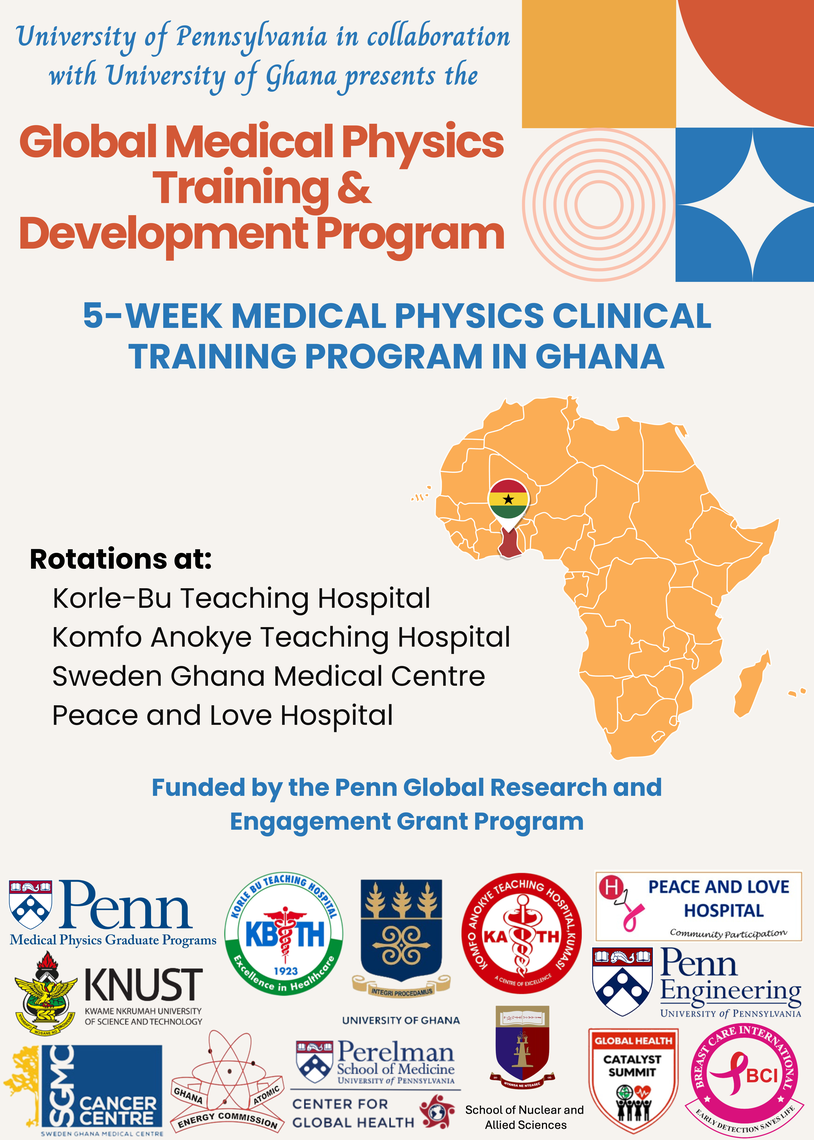
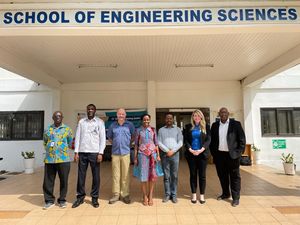
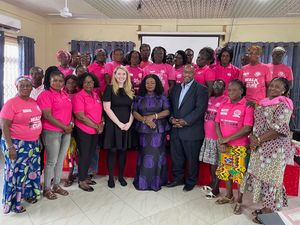
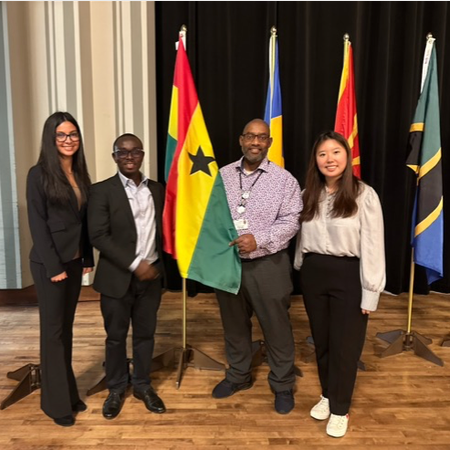
Global Clinical Practicum: Ghana
The Global Medical Physics Training and Development Program offers a clinical practicum in Ghana, the first-of-its-kind in medical physics graduate education. Selected students have the opportunity to complete this five-week, funded clinical training experience over the summer. Students participate in a cultural and program orientation before departure, and then rotate through four hospitals in Accra and Kumasi. During their experience, students learn about global health-related topics, complete a clinical project related to AI to improve clinical workflow, and participate in excursions with students from the University of Ghana to fully immerse in Ghanian culture.
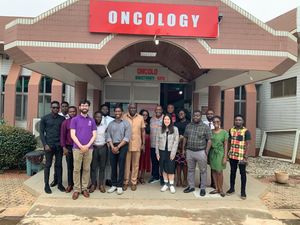
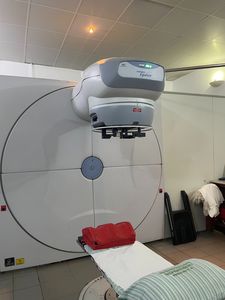
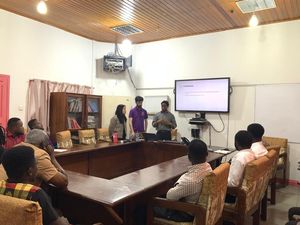
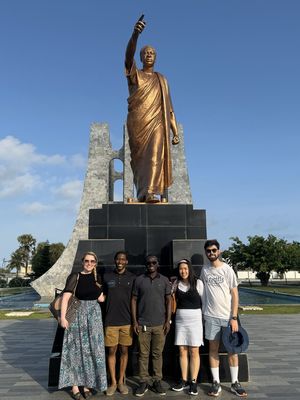
Global Health Invited Speaker Series
Through the Global Health Invited Speaker Series, Penn hosts renowned clinicians and scholars from departments of radiation oncology at teaching hospitals in Ghana. Students have unique opportunities to meet with guest speakers to learn about the opportunities and challenges of radiation oncology and cancer care in Africa.
Invited speakers include:
Dr. Verna Vanderpuye, Radiation/Clinic Oncologist at the National Center for Radiotherapy Oncology and Nuclear Medicine at Korle Bu Teaching Hospital and the University of Ghana; Professor, Department of Oncology at Queens University in Kingston, Canada
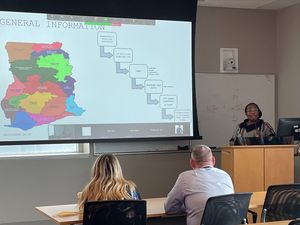
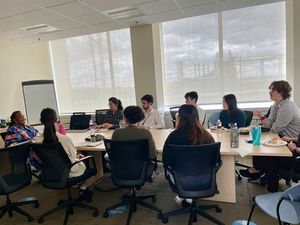
Dr. Eric Addison, Chief Medical Physicist & Senior Lecturer at the Oncology Directorate, Physics Division at Komfo Anokye Teaching Hospital in Kumasi, Ghana
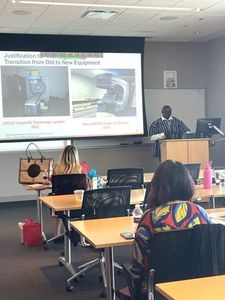
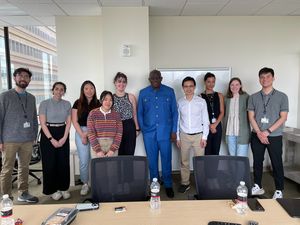
Global Peer-to-Peer Mentorship Project
Medical Physics Graduate Programs students initiated virtual peer-to-peer dialogue sessions with medical physics students in Ghana to share academic and clinical experiences and discuss issues impacting global health. The project's aim is to identify educational differences between the US and Ghana and their translations to healthcare inequities through open and intellectual dialogue. Students intend to collaborate on research projects and provide feedback to enhance the new clinical practicum in Ghana through this student-managed communication line.
